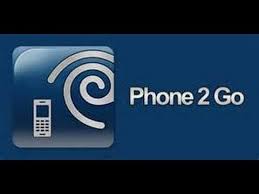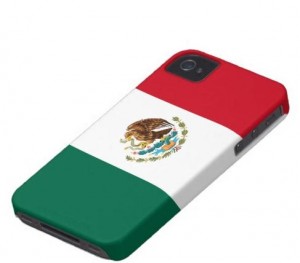 Time Warner Cable’s unlimited local calling area expands to most of Europe today, which means making and receiving calls from across the pond now costs the same as calling your neighbor next door.
Time Warner Cable’s unlimited local calling area expands to most of Europe today, which means making and receiving calls from across the pond now costs the same as calling your neighbor next door.
Time Warner Cable customers with Nationwide Calling telephone service ($10/mo) can now place unlimited toll-free calls across the U.S., Canada, Puerto Rico, the U.S. Virgin Islands, the Northern Marianas/Guam, American Samoa, Mexico, the People’s Republic of China, Hong Kong, India, and the 28 nations making up the European Union:
Austria, Belgium, Bulgaria, Croatia, Republic of Cyprus, Czech Republic, Denmark, Estonia, Finland, France, Germany, Greece, Hungary, Ireland, Italy, Latvia, Lithuania, Luxembourg, Malta, Netherlands, Poland, Portugal, Romania, Slovakia, Slovenia, Spain, Sweden, and the United Kingdom. (Norway, not an EU member nation, is also now toll-free. Surprisingly, no similar accommodation was made for neutral Switzerland.)
The changes mean no more long distance charges, no calling cards and pin numbers, and no varying rates. The free calling is included in your basic rate for home phone service — there are no add-on plans required. Some customers grandfathered on limited long distance or local-calling only phone plans do not qualify. Those customers are probably now paying more for those older plans than Time Warner today charges for its unlimited calling service.
 Just like broadband, the cost to transport phone calls around the world has never been cheaper, and rates continue to fall in most other countries, often below 25 cents a minute. The exceptions are usually high-cost service areas, countries where phone tariffs are set artificially high as a revenue generator or to discourage international calling, or places that have to rely on satellite-delivered telephone service. Some examples:
Just like broadband, the cost to transport phone calls around the world has never been cheaper, and rates continue to fall in most other countries, often below 25 cents a minute. The exceptions are usually high-cost service areas, countries where phone tariffs are set artificially high as a revenue generator or to discourage international calling, or places that have to rely on satellite-delivered telephone service. Some examples:
- Antarctica: It costs $3+ a minute, starting as soon as someone takes their gloves off to pick up the phone;
- Ascension Island: Expect to pay $2.30 a minute to make a call to this isolated island in the South Atlantic Ocean that needs no more than 4-digit phone numbers;
- Cambodia: High tariffs are a decision of the government in Phnom Penh, boosting the price of an international call to about $2.34 a minute.
- Chad: The corrupt one-party administration in N’Djamena uses international calling revenue to line its pockets, costing $2.40 or more a minute in many cases.
- Cook Islands: Like many South Pacific island territories, Cook Islands relies on satellite-based telephone services which are expensive. Calling someone there runs about $3 a minute;
- Equatorial Guinea: A tiny African state with a big appetite for foreign currency, the authoritarian government in Malabo thanks you for paying $2.15+ a minute to call the country;
- North Korea: Yes you can call North Korea and it’s a relative bargain at just $1.30+ a minute. Just assume the conversation won’t be private;
- Laos: Around $2.40 a minute. Laos is one of the five remaining Communist states (the others: North Korea, China, Cuba and Vietnam) Don’t call us, we won’t call you;
- Wallace and Futuna: Like other remote Pacific islands, making and receiving phone calls is dependent on expensive satellite circuits. The bureau responsible for overseeing French territories overseas also takes their cut, which makes calls to these two islands especially expensive at around $4 a minute.
 Charter Communications will close down Time Warner Cable’s Wi-Fi calling app Phone2Go on July 5, 2018, citing low customer usage.
Charter Communications will close down Time Warner Cable’s Wi-Fi calling app Phone2Go on July 5, 2018, citing low customer usage.

 Subscribe
Subscribe Time Warner Cable’s unlimited local calling area expands to most of Europe today, which means making and receiving calls from across the pond now costs the same as calling your neighbor next door.
Time Warner Cable’s unlimited local calling area expands to most of Europe today, which means making and receiving calls from across the pond now costs the same as calling your neighbor next door. Just like broadband, the cost to transport phone calls around the world has never been cheaper, and rates continue to fall in most other countries, often below 25 cents a minute. The exceptions are usually high-cost service areas, countries where phone tariffs are set artificially high as a revenue generator or to discourage international calling, or places that have to rely on satellite-delivered telephone service. Some examples:
Just like broadband, the cost to transport phone calls around the world has never been cheaper, and rates continue to fall in most other countries, often below 25 cents a minute. The exceptions are usually high-cost service areas, countries where phone tariffs are set artificially high as a revenue generator or to discourage international calling, or places that have to rely on satellite-delivered telephone service. Some examples: Time Warner Cable telephone customers may find their phone numbers missing from directory assistance records and residential phone books.
Time Warner Cable telephone customers may find their phone numbers missing from directory assistance records and residential phone books. Time Warner Cable phone customers with Unlimited Home Phone calling can now place toll-free calls to Mexico, the company announced today.
Time Warner Cable phone customers with Unlimited Home Phone calling can now place toll-free calls to Mexico, the company announced today.